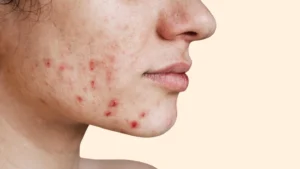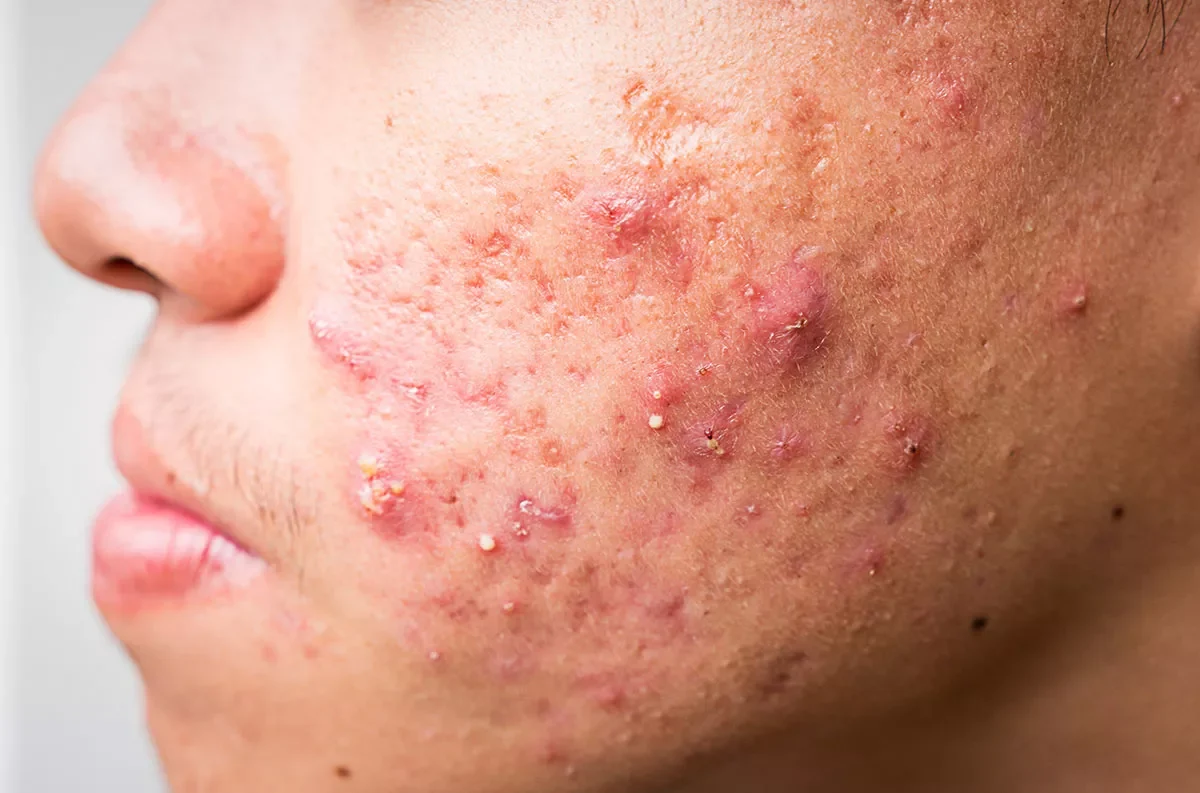Acne treatment is essential for managing skin conditions that lead to red bumps, lesions, cysts, and even bacterial infections. Effective treatment helps prevent scarring and promotes clearer skin.
Acne is caused when the hair follicles get clogged due to oil, dirt, and dead skin cells. Several factors, including genetics, hormones, and weather, increase an individual’s predisposition to acne.

In addition to affecting an individual’s appearance, acne can also take a toll on their mental well-being and self-esteem. It affects their self-confidence and causes them to become reclusive.
While acne typically affects adolescents and adults, it is also becoming increasingly common in children. Treatment for acne includes various topical and oral medications. Severe acne scars and pigmentation can also be treated using other cosmetic procedures.
In this blog, we will take a closer look at the best acne treatment options. We will discuss the benefits and drawbacks of taking acne medication and outline a few natural ways to combat the skin condition.
Table of Contents
Acne Medication: A Quick Overview
Patients can use both over-the-counter (OTC) and prescription medications for acne treatment. Some of the most efficient acne treatment options include:
- Isotretinoin (Prescription only)
- Adapalene (Available both OTC and by prescription)
- Benzoyl peroxide (OTC)
- Tetracycline (Prescription only)
- Tretinoin (Prescription only)
Female patients are also prescribed contraceptive pills. These pills help maintain the right balance of estrogen and progesterone, thus preventing acne. Other acne treatments include salicylic acid and azelaic acid.
Typically, acne treatment is administered in the form of topical or oral medications.
Topical Medication for Acne
The most common forms of topical acne medication are retinoids like tretinoin, adapalene, and tazarotene. These medications help prevent the hair follicles from getting clogged. Also, they control oil secretion from the glands.
Topical antibiotics are also prescribed to help patients fight bacterial infections due to acne. It is important to combine antibiotics with benzoyl peroxide to prevent antibiotic resistance.
Additionally, salicylic acid and azelaic acid can control oil production and prevent clogging of the pores.
Oral Medication for Acne
When topical medications aren’t as effective, oral antibiotics like tetracyclines and macrolides are used to combat bacterial infections.
Drugs with isotretinoin, such as Accutane and Oratane, are also used to treat severe acne. Similarly, contraceptive pills are prescribed as an acne treatment for women who want to use these pills for birth control.
Therapies for Acne
The most commonly used therapies for acne include laser therapy and microdermabrasion. Laser therapy involves the use of strong laser lights to kill bacteria and heal acne. On the other hand, microdermabrasion uses a gentle abrasive instrument to remove the top layer of the skin. It helps get rid of blackheads, whiteheads, and dead skin cells.
Drainage and extraction are useful ways of treating cystic lesions on the skin. It requires a medical professional to drain fluid, pus, and other materials from the cysts. Also, it improves the appearance of the skin by removing blackheads and whiteheads.
Patients are advised to consult an experienced cosmetic surgeon before considering any such therapies for acne.
The Downside of Acne Treatment
While acne medication and cosmetic procedures can help alleviate pimples and scars, they also cause a wide array of side effects.
For instance, topical acne medications are known to cause skin irritation, dryness, and redness. They can also make an individual’s skin more sensitive to the sun, thus increasing their predisposition to sunburns.
Similarly, topical and oral antibiotics used for acne treatment can cause patients to develop antibiotic resistance. Other side effects of antibiotics include nausea, gastrointestinal problems, and dizziness.
Long-term use of isotretinoin can cause inflammatory bowel disease and depression. Administering the medication to pregnant women also results in severe congenital disabilities in a newborn child. Similarly, prolonged use of contraceptive pills puts women at increased risk of developing cervical cancer and breast cancer.
Cosmetic procedures, such as drainage and extraction, don’t involve the harmful side effects of acne medication. But they involve a higher price point and might be out of reach for adolescents and young adults with acne. Also, if these procedures go wrong, they can aggravate scarring and
As a ground rule, individuals with acne should never administer any medication without consulting a doctor. It is equally important to report any side effects they might experience from these drugs.
The silver lining is that drugs and cosmetic therapies aren’t the only ways to treat the condition. There are several natural ways to deal with acne, as well as heal the scars.
Natural Remedies for Acne
It is important to understand that acne is caused by a combination of various environmental, hormonal and psychological factors. Unhealthy eating habits, poor sleep hygiene and stress can aggravate acne.
| Category | Tips / Recommendations |
|---|---|
| Lifestyle | Minimize stress, practice regular meditation, exercise daily, and get at least 8 hours of sleep. |
| Bedtime Routine | Follow a relaxing bedtime routine, go to bed, and wake up at the same time every day. |
| Diet | Avoid processed and fried foods, reduce intake of caffeine, sugar, and high-carbohydrate. |
| High-Fiber Diet | Include plenty of fresh, whole foods and fiber-rich ingredients. |
| Avoiding Allergens | Eliminate potential allergens like gluten and dairy (if sensitive). |
| Hydration | Stay well hydrated by drinking enough water throughout the day. |
| Herbal Remedies | Use natural options like tea tree oil and witch hazel carefully to reduce inflammation. |
Closing Thoughts
Medication isn’t the only effective way to fight acne. Proper sleep, exercise, meditation, and a balanced diet are crucial for maintaining healthy skin. Also, a gentle skincare routine is crucial for keeping the skin clean and hydrated.

You must be logged in to post a comment.